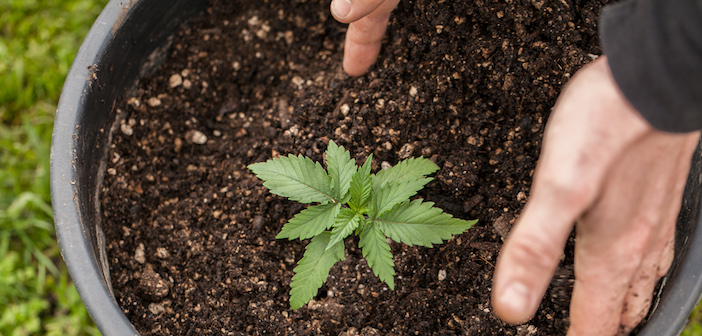German company Lexamed has successfully filed a lawsuit against the Federal Institute for Drugs and Medical Devices’ (BfArM) selection process for medical cannabis cultivation in Germany, delaying selection and implementation of the country’s medical cannabis cultivation program. Lexamed produces wheelchairs, rollators, and electric drives and wanted to invest in the cultivation of medical cannabis as early as possible, but at the end of June, BfArM rejected the company’s application.
At the beginning of June, 118 companies had applied for a medical cannabis cultivation-license in Germany. Until Lexamed’s appeal against the application criteria is heard by the Düsseldorf Higher Regional Court Dec. 20, official application evaluations, which should have been decided in October, are suspended.
Criteria Favors Experience
Generally, the BfArM regulates any production that must be done in compliance with the U.N.’s Single Convention on Narcotic Drugs of 1961, an international treaty that set regulations for the supply and production of specific drugs, including cannabis.
Cultivation applicants are required to meet many criteria to prove their capacity in the field of growing, processing, and supplying medical cannabis or growing phytomedicinal products in general. In a staged lottery, ten licenses are distributed by drawing lots among all applicants fulfilling the required criteria. For every hundred kg of cannabis grown, applicants earn 10 points, with a maximum of 40 points. So, if an applicant can prove they’ve already grown 200 kg of medical cannabis within the last three years, they will have already satisfied two-thirds of the minimum criteria. A maximum of 20 additional points is awarded based on references for the other herbal medicinal products.
If fewer than ten companies meet the requirements, licenses will be given to the applicants with the most points. Each cultivator is expected to deliver 200 kg of medical cannabis per year. For the period from 2019 to 2022, around 6.6 tonnes were scheduled for cultivation. To ensure each applicant is able to produce enough cannabis for a period of 65 months, up to seven lots per applicant may be awarded.
In order to achieve the maximum score of 60 points, candidates must demonstrate experience in growing at least 50 kilograms of medicinal cannabis within the last three years and have references in the cultivation field.
Only applicants who could prove they had already made finished drugs from medical herbs could earn the highest score.
Additionally, cannabis “made in Germany” will be subject to some of the strictest standards. In the Netherlands and Germany, test results for THC and CBD content must be within a +/- 10-percent deviation. In Canada and the Netherlands, the allowable deviation is 20 percent. For example, if a product is expected to test at 20 percent THC based on any previous testing, but tests at 35 percent, that’s allowable in Canada or the Netherlands as long as the THC percentage is clearly labeled on the product. In Germany, that crop would fail, so even if producers are awarded licenses to cultivate, they have very little room for error.
German Companies Alone Have No Chance
The catch is that applicants who did not partner with experienced companies from Canada, the Netherlands or Israel — countries with companies that meet the 200 kg cultivation criteria — would have been able to get in front of only 20 of the 60 possible points, putting them at a disadvantage. Partner companies from the United States did not meet the criteria, because cannabis production in several states is not subject to federal regulation, which, according to the Single Convention, renders the activities of U.S. producers generally illegal.
Numerous critics claim the selection criteria is tailored for large Phyto-Pharma companies and foreign investors. In principle, German startups have no chance of fulfilling the conditions given by the Federal Republic of Germany, because there has been no legal cultivation of cannabis in Germany. German cultivation activities could not be cited as a reference to earning the points necessary for their application to be approved.
“If the federal government had not tried to exclude German start-ups, various license-holders would already have taken first concrete steps to prepare production. Now there is the possibility that there will be significant delays,” Hanfverband CEO Georg Wurth told Marijuana.com.
What Now?
Until the objection is heard, the selection process is at a standstill. The judges considered the complaint as “not obviously hopeless” in September. If they agree with Lexamed’s lawyers, the current application procedure will be obsolete and the BfArM will need to develop other criteria, giving opportunities to companies that have not yet been able to grow cannabis due to the legal situation in their country.
Such a delay would throw the industry’s schedule back and delay the first crop for at least six months, aggravating an already unsatisfactory supply situation. If the litigious company’s complaint is dismissed, the first cultivation licenses, which should have been issued a month ago, could follow in January 2018.
credit:marijuana.com

